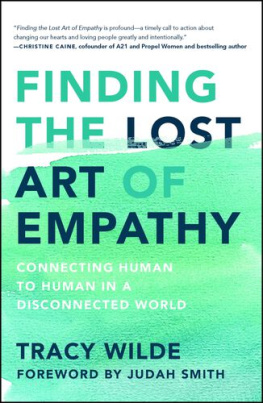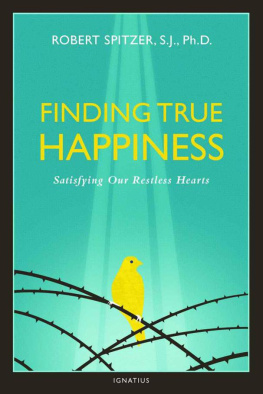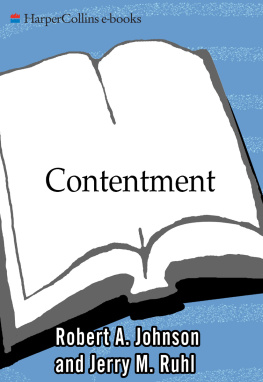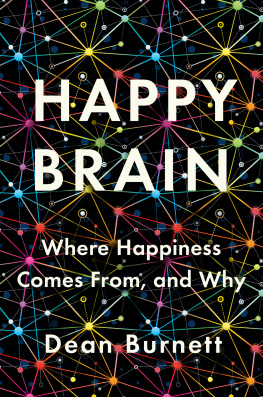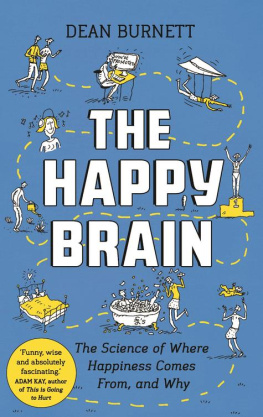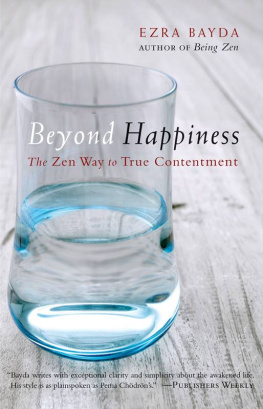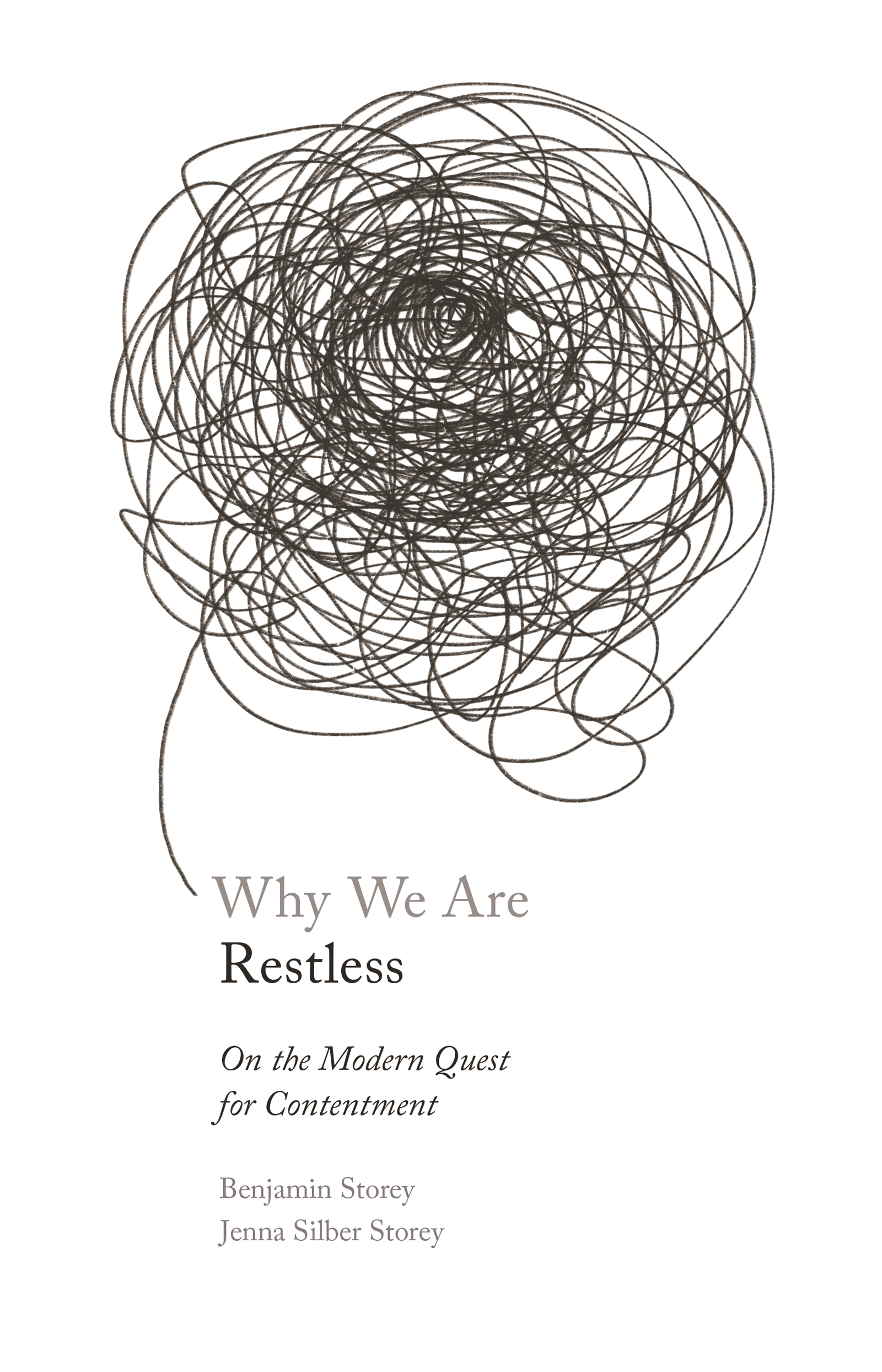WHY WE ARE RESTLESS
NEW FORUM BOOKS
Robert P. George, Series Editor
New Forum Books makes available to general readers outstanding, original, interdisciplinary scholarship with a special focus on the juncture of culture, law, and politics. The series is guided by the conviction that law and politics not only reflect culture, but help to shape it. Looking at questions that range from political equality to poverty and economic development to the international legal and political order, New Forum Books seeks to explainnot explain awaythe difficult issues we face today.
For a full list of titles in the series, go to https://press.princeton.edu/series/new-forum-books.
Why We Are Restless: On the Modern Quest for Contentment by Benjamin Storey and Jenna Silber Storey
Speak Freely: Why Universities Must Defend Free Speech by Keith E. Whittington
Democratic Faith by Patrick Deneen
The Priority of Love: Christian Charity and Social Justice by Timothy P. Jackson
Covenantal Rights: A Study in Jewish Political Theory by David Novak
The Future of Assisted Suicide and Euthanasia by Neil M. Gorsuch
Praise and Blame: Moral Realism and Its Applications by Daniel N. Robinson
Freedoms Orphans: Contemporary Liberalism and the Fate of American Children by David L. Tubbs
Democracy and Tradition by Jeffrey Stout
That Eminent Tribunal: Judicial Supremacy and the Constitution by Christopher Wolfe
Why We Are Restless
On the Modern Quest for Contentment
BENJAMIN STOREY AND JENNA SILBER STOREY
PRINCETON UNIVERSITY PRESS
PRINCETON AND OXFORD
Copyright 2021 by Princeton University Press
Princeton University Press is committed to the protection of copyright and the intellectual property our authors entrust to us. Copyright promotes the progress and integrity of knowledge. Thank you for supporting free speech and the global exchange of ideas by purchasing an authorized edition of this book. If you wish to reproduce or distribute any part of it in any form, please obtain permission.
Requests for permission to reproduce material from this work should be sent to
Published by Princeton University Press
41 William Street, Princeton, New Jersey 08540
6 Oxford Street, Woodstock, Oxfordshire OX20 1TR
press.princeton.edu
All Rights Reserved
ISBN 978-0-691-21112-1
British Library Cataloging-in-Publication Data is available
Version 1.0
ISBN (e-book) 978-0-691-21113-8
Editorial: Rob Tempio and Matt Rohal
Production Editorial: Jenny Wolkowicki
Text design: Karl Spurzem
Jacket design: Amanda Weiss
Production: Erin Suydam
Publicity: Amy Stewart and Maria Whelan
Copyeditor: Jennifer H. Backer
For three great teachers:
Larry Goldberg, Leon R. Kass, and Peter Augustine Lawler
PROLOGUE
We Restless Souls
She has done everything the college has asked of her, only better. The star student of two departments, she has notched impressive summer internships, spent several semesters abroad, founded one club, served as president of another, and collected her Phi Beta Kappa key the previous spring. As graduation approaches, she has come to us to talk about her future. This should be easy.
Law school or a PhD? For years she has had her eye on these goals and is now well positioned for either. But then the options she puts before us start to diverge: maybe teaching (plausible), maybe farming (not so plausible), perhaps a year abroad, perhaps a return home, perhaps more schooling, perhaps an end to all schooling. She wants to do good in the world and speaks passionately about her pet political causes, but she is also nostalgic and speaks wistfully about family, retreat, and quiet. As she detects the discordance of the possibilities she is contemplating, she is unnerved. The tightness of her face, the finger picking at the plastic tabletop, the skittish darting of her eyes, make her look less like a very fortunate person choosing from the bountiful banquet she has earned the right to enjoy than a terminally ill patient choosing from a grim variety of palliatives. She has made the most of her American birthrightto pursue happiness wherever it leadsand her very success has left her at a loss. Years of steady progress have culminated in a strange and restless paralysis.
We would like to help her but are not at first sure how. Discussing her predicament soon leads us to see, however, that her unease is not unfamiliar. We, too, have much to be grateful for: the blessing of children, the gift of students, the shared work of thinking, a comfortable home. We spend our days tending to these giftsteaching, studying, and going to meetings; helping the young ones with spelling, math, and science; ferrying them to piano, aikido, and dance; sitting down at last to family dinner and a family bedtime storythen once again back to the laptops to respond to the incoming flak of email and arrange another such day. Although we shake our heads at our students frenetic dedication to extracurriculars, we see that we have made our own days full, often fuller than we can handle. The restlessness we observe around us can also be seen within.
We should be grateful to have such problems, and we are. But as Blaise Pascal pointed out long ago, even the fortunate can be unhappy. And their unhappiness can be particularly persistent, for when people seem to have solid reasons for feeling better than they do, they often believe themselves obliged to let their unhappiness go unexamined. Such an absence of self-reflection can make them prone to do senseless thingsfor they are already doing all the sensible things and are still unhappy.
For our countrys sake, we wish this restlessness were confined within the gates of leafy campuses like the one where we teach. But its symptoms pervade American life: in our love for the screen, with its diversions and distractions; in our demand for endless variety in what we eat, drink, and wear; in our appetite for mind-altering substances, from pot to Prozac to Pinot Grigio; in our fascination with crises in almost every area of human life. True, restlessness may be particularly acute among the privileged. But the privileged, by definition, lead the country. Justly or unjustly, their aspirations and problems shape everyones lives.
Such restlessness cannot help but have political consequences. As Plato wrote long ago, the passions that shape our common life do not arise from an oak or rock but from the characters of the people who live in the cities. Political communities derive both their strengths and their disorders from the virtues, longings, failings, and fears of the human beings who give them life. Successful Americans are energetic people who work relentlessly and enjoy an astonishing plenitude of honors, opportunities, and comforts as their reward. But when those goods fail to make us happy, we sometimes find ourselves entertaining strange and radical thoughts that belie the pragmatism for which Americans are famous.
A Frenchman noticed this peculiarity of our national character long ago. Touring America in 1831, Alexis de Tocqueville discovered that the most free and most enlightened men placed in the happiest condition in the world were not content with what they hadthat they were restless in the midst of their well-being. Beneath their successful pursuit of prosaic goodsadding new rooms to their houses, extracting more profit from lines of tradethey were profoundly uneasy. His lesson, not only for America but for the whole modern world, was that the achievement of an unprecedented degree of freedom, equality, and material prosperity would not guarantee steady lives or a stable social order. For free, equal, and prosperous people may think about their lives in a way that makes such steadiness impossible.



